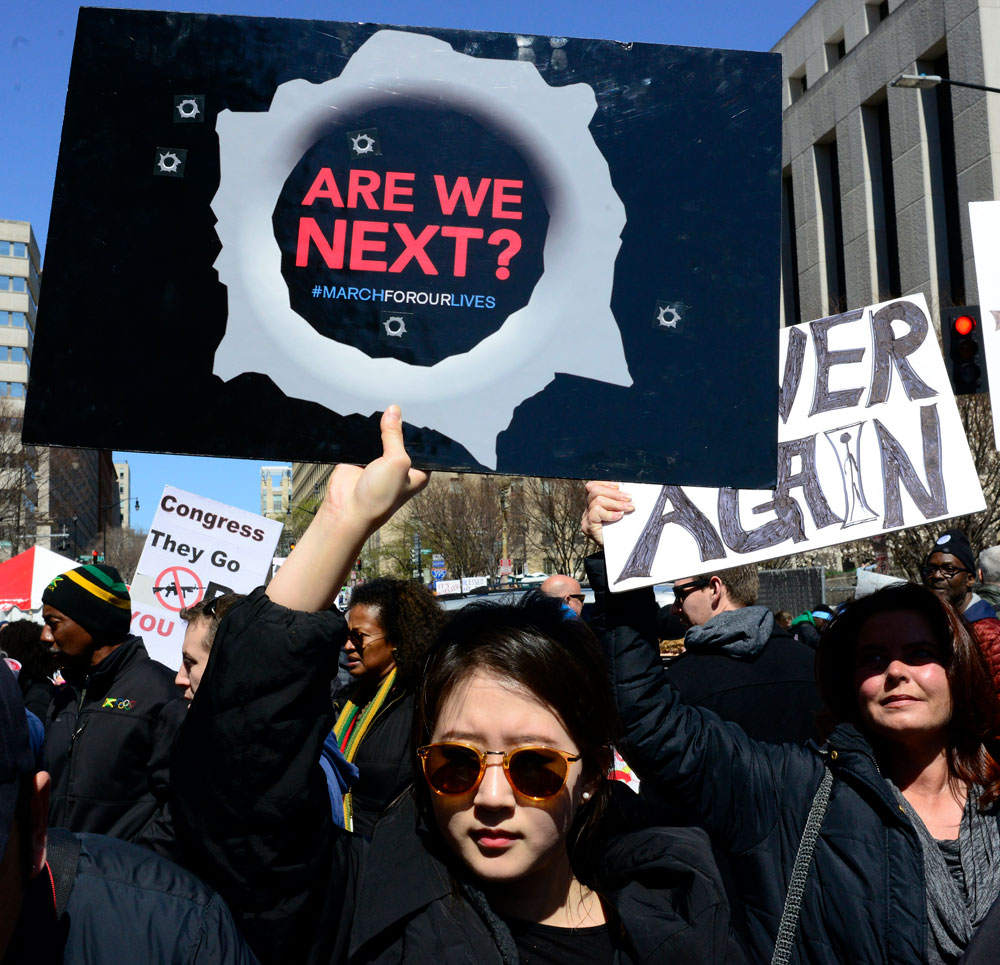
September 3, 2020; New York Times, Slate, and the Christian Science Monitor
The National Rifle Association (NRA) is facing rough times. New York state attorney general Letitia James is calling for its shutdown in court—its assets given away and its leadership forced to repay the funds they have misused—for epic levels of mismanagement. More and more, the NRA finds itself out of step with public opinion, with recent polls favoring background checks and other firearms control legislation. Now, the internal strife that has roiled the organization for years and drained its finances will gain new exposure as a tell-all book hits stores this week.
The new book, Inside the NRA, is authored by Joshua L. Powell, once the organization’s second-in-command and one of the officials James has accused of serious malfeasance. As reported by the New York Times, Powell undercuts “the group’s orthodoxy” by “calling for universal background checks and so-called red flag laws.” He calls the organization out as “more focused on money and internal intrigue than the Second Amendment, while thwarting constructive dialogue on gun violence.”
Powell puts much of the blame on CEO Wayne LaPierre, who he casts as the ringmaster of an “evil circus” whose mission was to “sell the fear” to “excite the most extreme faction of our membership.”
“The organization was working to create and fuel the toxicity of the gun debate until it became outright explosive,” Powell says.
Of course, from the NRA’s perspective, Powell is a disgruntled former employee covering up past misdeeds with false claims. LaPierre tells the Christian Science Monitor “the NRA is…financially solvent and committed to good governance,” with 50,000 new members since New York brought its suit. Board member Todd Rathner tells the New York Times that the board has offered LaPierre its full support: “No one was surprised by this, and every board member I’ve spoken to is ready to fight.”
The back-and-forth makes for titillating reading, but is an organization with more than 5 million dues-paying members, a balance sheet that remains large, and a political message that resonates with its most avid supporters, really at risk?
Maybe so. In Slate, Alex Yablon argues, citing a recent interview with Michael West, the senior attorney at the New York Council of Nonprofits, that the only available remedy will be to dissolve the NRA:
The level of deception and the endless conflicts of interest at every level—I don’t know what you could do to rehabilitate it from a management perspective. The entire management team and board has to go. But if you take out the entire leadership, who runs it? It’s not the AG’s job to recruit new executives and board members. So dissolution is the only viable option.
Sign up for our free newsletters
Subscribe to NPQ's newsletters to have our top stories delivered directly to your inbox.
By signing up, you agree to our privacy policy and terms of use, and to receive messages from NPQ and our partners.
But before gun control advocates cheer the possible death of the big, bad wolf that’s preserved our toxic gun culture, take a deep breath. New York nonprofit law requires that a dissolved organization’s assets be given to groups that continue serving the mission. Resources would go to one or more nonprofits that, according to West, are “absolutely squeaky clean” but “have really aggressive Second Amendment politics.”
Turns out many nonprofits are waiting for that chance. On the national level, there’s Gun Owners of America, which describes itself as even more pro-gun than the NRA—“the only no-compromise gun lobby in Washington.” According to Slate, “Its former executive director, Larry Pratt, isn’t shy about cozying up to militias and white power groups. Yet there’s no evidence the group is involved in any financial shenanigans, so GOA could credibly claim to be an inheritor to the NRA.”
Jennifer Bailey, a digital marketer near Richmond, is a member of the Virginia Citizens Defense League, which recently mobilized to oppose efforts to tighten the state’s gun laws. She describes a growing shift from national to local organizations:
It’s pretty natural for people to come together in their own communities first and foremost, and I also think that’s the way our country was designed and I also believe that’s how God created us….It seems only natural that we would come together in a community-based way more powerfully than a national organization or even a national government would be able to.
Reflecting this conservative vision that local is better than national, Wake Forest University sociologist David Yamane, founder of the Gun Culture 2.0 blog, explains to the Christian Science Monitor that “the NRA’s insularity is intimately connected with the ideological alignment…with politically conservative culture warriors.”
Yamane believes the NRA’s role can be taken up by “the proliferation of gun clubs, groups, and organizations representing diverse gun owners”—among them the National African American Gun Association, A Girl and a Gun, and Liberal Gun Owners.
The battle to limit the power of the NRA may be won in court but, as NPQ recently noted when it cited the words of Kelly Choi, Bria Smith, and Serena Rodrigues, “lasting change requires agitating the system from the outside…and by working within it to strategically dismantle the bigotry, racism, and corruption that fuel the epidemic of gun violence in this country. (A great leader once called this ‘good trouble.’)”
The path to gun control—surprise!—requires advocacy and organizing, not just waiting for the NRA to implode. Gun control advocates will still need, as Drew Adams concludes, to “rally around the organizations best equipped to move us toward a just future by ensuring they remain supported, accountable, and uplifted.”—Martin Levine













